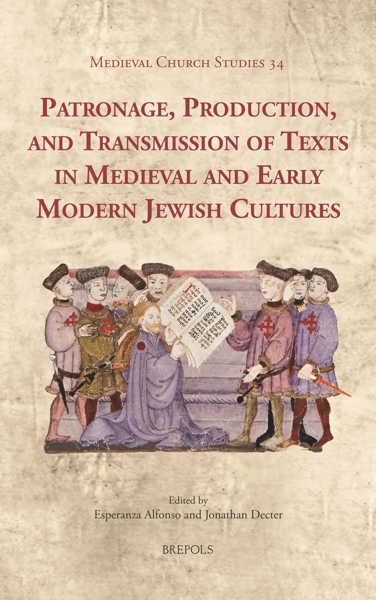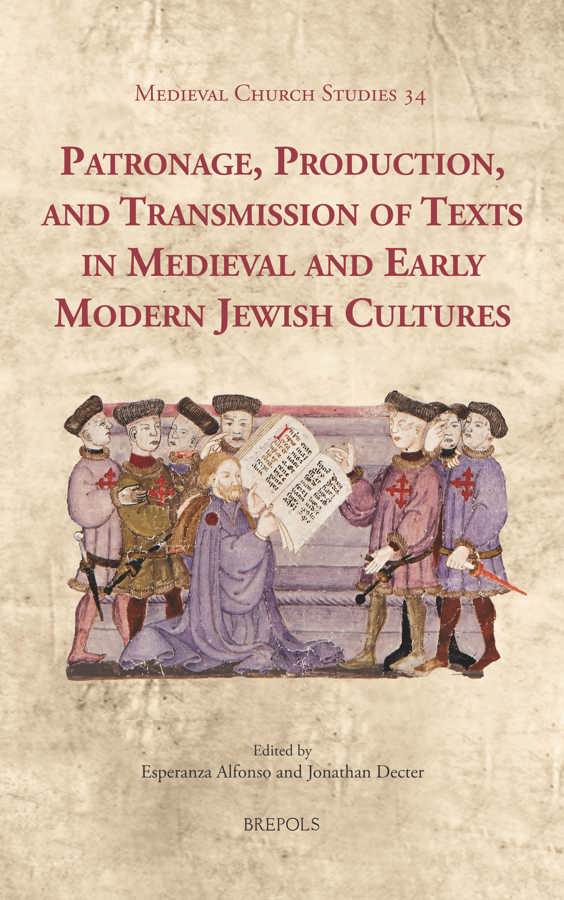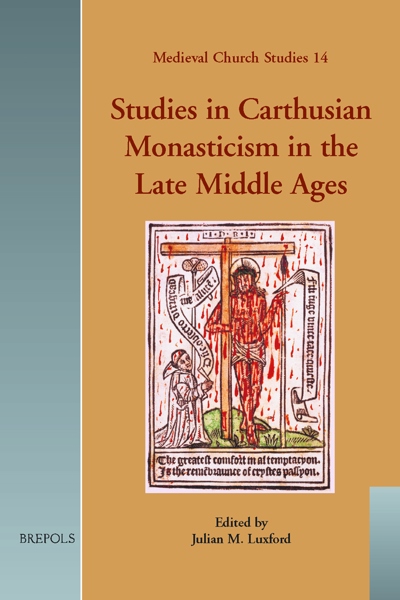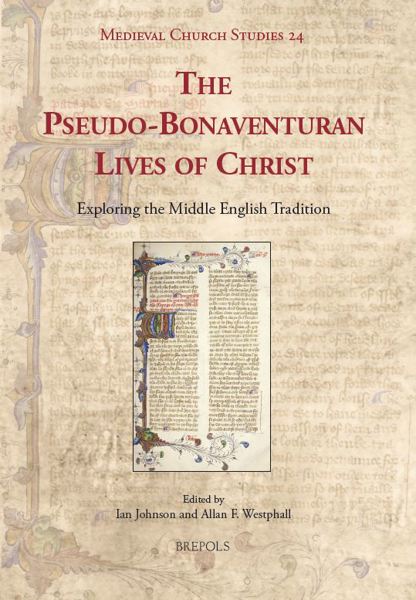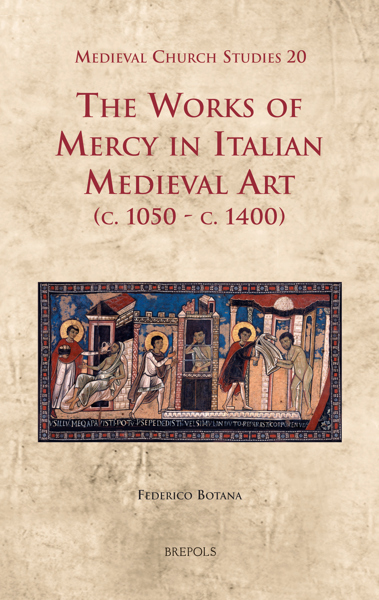
Patronage, Production, and Transmission of Texts in Medieval and Early Modern Jewish Cultures
Esperanza Alfonso, Jonathan Decter (eds)
- Pages: 383 p.
- Size:156 x 234 mm
- Illustrations:35 b/w, 3 tables b/w.
- Language(s):English
- Publication Year:2014
- € 110,00 EXCL. VAT RETAIL PRICE
- ISBN: 978-2-503-54290-4
- Hardback
- Available
- € 110,00 EXCL. VAT RETAIL PRICE
- ISBN: 978-2-503-54316-1
- E-book
- Available
This book brings under consideration the production, patronage, circulation and consumption of Jewish sacred books in the medieval and early modern Mediterranean
"At times, the reader struggles to see the thematic link between all of the included chapters, but anyone interested in the production of Jewish texts or the role of patronage in the early modern period will benefit from the research presented here. The vast array of geographical and historical examples in the book is evidence of the foremost importance of text in Jewish culture throughout history." (Rebecca Lobel, in: Parergon 32.2, 2015, p. 254-256)
« (…) on ne peut que reconnaitre que la prise en compte des intentions à l’œuvre dans l’élaboration d’un livre – le message écrit ou graphique, ou l’objet qui le porte – permette de lui poser utilement des questions peut-être, parfois, négligées auparavant. » (Jean-Pierre Rothschild, dans la Revue des études juives, 175/3-4, 2016, p. 465)
Medieval and early modern cultural history has witnessed a recent shift from the study of manuscripts and early printed books as vehicles of texts and images towards their study as cultural objects in their own right. Rather than focusing solely on original authorship, scholars have turned to subjects such as the patronage, production, circulation, and consumption of texts. Codicological features, annotations, glosses, ownership notes, deeds of sale, and other traces have revealed countless insights into the social worlds of texts – their patrons, producers, and readers.
This book contributes to this area of scholarship with respect to Jewish texts and Jewish social contexts by focusing on select cases in the production of Bibles, Haggadot, religious poetry, and translations of and commentaries on scripture in the Eastern and Western Mediterranean between the tenth and sixteenth centuries. Individual essays consider models of patron–client relationships, interconfessional patronage scenarios, manuscript production through ‘multiple hands’, the (incomplete) transition from manuscript production to printed books, and relationships among text, image, and reader as suggested by codicological features.
Introduction
I. Approaches to Patronage
Patronage in the Context of Solidarity and Reciprocity: Two Paradigms of Social Cohesion in the Premodern Mediterranean — MARINA RUSTOW
Models of Patronage in Medieval Spain — ELEAZAR GUTWIRTH
II. Patron, Client, and Reader
Some Observations on Jewish Poets and Patrons in the Islamic East: Twelfth-Thirteenth Centuries — JOACHIM YESHAYA
The Audiences of Late Medieval Haggadah — KATRIN KOGMAN-APPEL
III. Patron-Client Dynamics and the Patron’s Image
Jewish Exegetical Works and the Construction of Kingship in Medieval Naples — LUCIA FINOTTO
Subverting Patronage in Translation: Flavius Mithridates, Giovanni Pico della Mirandola, and Gersonides’ Commentary on the Song of Songs — MICHELA ANDREATTA
Patronage of the Bible in Sixteenth-Century Spain: A Defence of the Faith or an Attack on Heresy? — MARÍA TERESA ORTEGA-MONASTERIO
IV. In the Workshop
From the Desks of a Coptic-Muslim Workshop: Paris, BNF, MS Ar. 1 and the Large-scale Production of Luxurious Arabic Bibles in Early Ottoman Cairo — RONNY VOLLANDT
Joshua ibn Gaon’s Hebrew Bibles and the Circulation of Books in the Late Medieval and Early Modern Periods — JAVIER DEL BARCO
The Patron as Scribe and the Performance of Piety in Perpignan during the Kingdom of Majorca — EVA FROJMOVIC
V. Christian Patron, Jewish Client
Jews and the Copying of Books in the Iberian Peninsula in the Fourteenth and Fifteenth Centuries — GEMMA AVENOZA
Luis de Guzmán’s Patronage and the Spanish Translation and Commentary of the Bible by Arragel — ÁNGEL SÁENZ-BADILLOS
